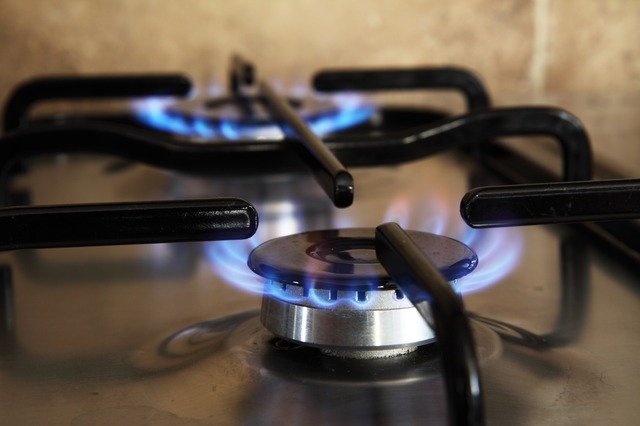If you have an appliance that keeps malfunctioning, you may want to consider repairing it before replacing it. Many times, minor problems can quickly escalate into larger issues. If you don’t repair them as soon as they happen, you could end up paying more for repairs over time.
Is it Better to Repair Or Replace Appliances?
It is as important to know how to diagnose a major appliance problem as to repair it through the right appliance repair near me service in Coral Springs FL. However, there are some things that you must consider before hiring a professional to repair an appliance for you. If you do not know what to look for, you may end up spending a lot more money than you need to on repairs.
Is it worth it to fix an appliance?
Most household appliances are built to last at least 15 years. With proper maintenance, you can get the most life out of them. However, if an appliance breaks down after its lifespan, it might be better to replace it than repair it. This is because parts for an older appliance may be harder to find or harder to repair.
In addition, new appliances are more energy-efficient than old ones. These energy-saving characteristics translate into large savings for your wallet. It might seem like an expensive investment up front, but you can save almost ten percent of your utility costs by replacing a new appliance.
What is an appliance repair person called?
The term “appliance repair person” is used to describe a person who performs repairs on a range of appliances. In addition to replacing worn or damaged parts, these professionals may also assemble new units and disassemble old ones. They also clean and lubricate parts and equipment as needed. They may also help you conserve refrigerants. Some appliances require leveling, which can be done by an appliance repair specialist.
A successful technician must be mechanically minded, have knowledge of electrical and mechanical components, and understand safety precautions. They must also have good listening and critical thinking skills. Most importantly, they should be able to handle time well and make sound decisions under pressure.
Can you repair home appliances?
Most household appliances are designed to work well and last for many years. They save us energy, time and frustration. But sometimes, they break down. When this happens, you may not even know why or how to fix it. There are many ways to repair your appliances. You may be able to find a technician who will repair your broken appliance at no cost.
First of all, you should always disconnect the power and turn off the appliance before working on it. There are some simple repairs that you can do yourself, such as replacing gaskets or replacing filters. But be careful when working on electrical wiring and appliances that use gas or electricity, as improper repairs can lead to dangerous gas leaks or fires. Also, you should always be careful when working on built-in appliances, as you may damage the surrounding cabinets.
Is it better to repair or replace appliances?
The answer to the question “Is it better to repair or replace appliances?” depends on a few factors. For starters, it’s important to consider the age of your appliances. Older appliances may require additional repairs in the future. Also, finding a repair person is often a challenge.
Another factor that will determine whether it’s better to repair or replace an appliance is cost. Repairing an appliance can cost around 50% of its replacement price. Whether it’s more cost-effective to repair or replace depends on the age of the appliance and its overall condition. Appliances that are less than two years old may be cheaper to repair.
Generally, home appliances have a lifespan of ten to fifteen years, but the average lifespan may vary. It may also depend on the brand and model. Refrigerators and washing machines, for example, tend to last between eleven and fourteen years. Gas ovens, on the other hand, last for 15 to 17 years. Dishwashers last for around nine years. In most cases, it’s cheaper to replace than repair a major appliance.
Who Is an Appliance Technician?
An appliance technician is a skilled professional who diagnoses and repairs various types of appliances. They use problem-solving skills to determine the cause of an appliance’s problems, research solutions, and implement them to solve the problem. They also prioritize their work, keep records, and sometimes collaborate with other technicians.
What is appliance repair job?
When you think about becoming an appliance repair technician, you probably think about repairing and servicing household appliances. But there are many more aspects to the job than just repairing appliances. A skilled technician can fix electronic components, open machinery housings, and use specialized tools. It also requires strong interpersonal and communication skills to deal with customers and other repair professionals.
The skills acquired in this field can transfer to many different careers. For instance, an appliance repairer can go into real estate or service fields. In a home flipping job, you might work to fix up a distressed home, giving it a new coat of paint. Then, you might also do light remodeling on the house. In this kind of job, you’ll likely need to repair the appliances to make them more appealing to potential buyers.
What is a appliance engineer?
The role of an appliance engineer entails a range of responsibilities, including installation, repair and maintenance of household appliances. The job entails the use of power tools and an eye for detail. It also requires the ability to work under pressure and concentrate for extended periods. An appliance engineer must also be patient and responsible.
The salary of an appliance engineer can range from $48,000 to $72,000 per year. The average salary is $60,000, with the top six percent of appliance engineers earning over $72,000 a year. An individual filing as a single in the middle 67% tax bracket in 2018 would pay an average of 22% federal tax on this salary. This results in a take-home pay of $50,861 per year, or approximately $2119 per paycheck.
What are the roles and responsibilities of appliance technician?
An appliance technician performs repair and maintenance tasks on a variety of electrical and gas appliances. The role also involves identifying faulty connections and tracing electrical circuits. They can also conduct tests to find shorts and grounds, and speak with customers about appliance problems. Other responsibilities include reading work orders, analyzing preventative maintenance needs, and reassembling units after repairs. In addition, they may perform minor touch-ups on newly installed appliances.
In addition to problem-solving skills, appliance technicians must be capable of prioritizing tasks and following a schedule. They also must have strong technical skills to troubleshoot and repair a variety of different types of appliances. Some jobs also require a technician to coordinate with other technicians.
What are minor appliance faults?
Minor appliance faults can vary in their nature and severity. The process of determining the cause of the fault differs for different symptoms. If there are no error codes, the process of determining the cause will be more time-consuming and requires a deeper knowledge of the product, its construction, and the physics of failure. This means that it is not a task for the uninitiated and many people will need the assistance of an expert.
Most of the time, a minor appliance fault is caused by a lack of power or circuit. In these cases, a tripped circuit breaker is the most likely cause. Another common cause is worn wiring. Wiring is different for different types of appliances, so make sure that you know what type of wires are used on your appliance before attempting to repair it yourself.
Why is it essential to know the importance of repairing a domestic appliance?
If you own a home appliance, it’s important to know how to repair it. Even a minor problem can turn into a large one if you don’t fix it. Worn parts can cause problems with other parts and your appliance can eventually stop working. Then you’ll be faced with a much higher repair bill, and you might need to replace it entirely.
In addition to wasting money and energy, faulty appliances can also pose safety risks. They can cause short circuits, which can lead to fires.
